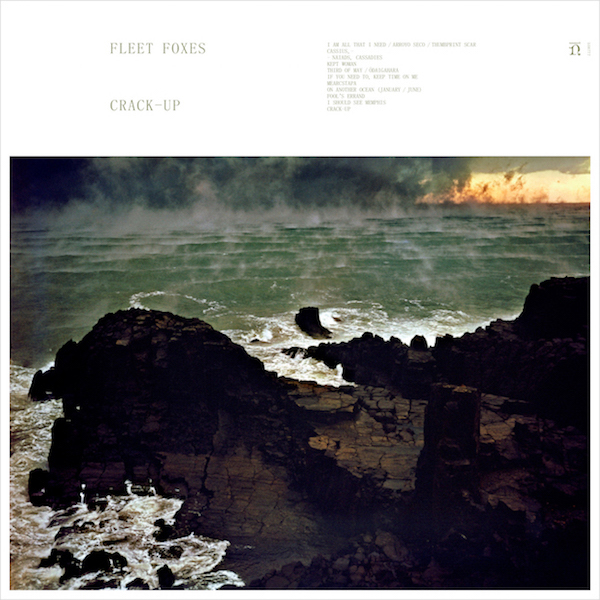After a six-year hiatus, Seattle band Fleet Foxes is back with their third studio album “Crack-Up.” The band is known for their classic indie folk sound and delicate, yet powerful harmonies in songs like “Helplessness Blues,” “White Winter Hymnal” and “Mykonos.” However, this album ditches their stereotypical joyous sound for a darker and gloomy one by questioning aspects of life with skepticism and hope at the same time.
During their hiatus, the band’s original drummer, Josh Tillman, more commonly known as Father John Misty, left the band after their second album was released and went on to become a popular name in indie music. In contrast, lead singer Robin Pecknold used this time to go to Colombia University to get his degree and even co-wrote the score to an off-Broadway play.
The album’s themes of love, loss, relationships and even politics show Pecknold might have used this time for some self-discovery and didn’t rush the artistic process.
The first song of the album, “I Am All That I Need/Arroyo Seco/Thumbprint Scar,” incorporates three different melodies, revealing why there are three different phrases in the title. The six-minute song talks about how things aren’t what they’re really cut out to be.
“And the thumbprint scar I let define you was a myth I made you measure up to, you’ve got all you need on me and now I see that it’s all corroding,” Pecknold sings. The song ends with “White Winter Hymnal” being sung acapella, reportedly by high school students, similar to the version that acapella group Pentatonix released back in 2015.
The concept of lying is also mentioned throughout the album. Pecknold emphasizes this in songs such as “Fool’s Errand,” where he sings “I knew you fine, slight dream of mine, but I know my eyes, they’ve often lied.” Lying is also at the center of to “On Another Ocean (January/June), where Pecknold sings, “wherever you run, you see all you leave behind you lies inside.”
“Crack-Up” also takes note of the politically violent times in our country with “Cassius.” “Red and blue, the useless sirens scream,” Pecknold sings. The track also includes somewhat of an indie electronic sound different from anything Fleet Foxes has ever released.
Pecknold uses a variety of allusions throughout the album, specifically in the song titled “Mearcstapa,” a word used in the 10th-century poem “Beowulf.” A mearcstapa or march-stepper is a creature that is between a man and monster, who stalks borderlands.
“Third of May/Ōdaigahara” is about Pecknold’s relationship with bandmate Skyler Skjelset. “It addresses our distance in the years after touring, the feeling of having an unresolved, unrequited relationship that is lingering psychologically,” Pecknold told Pitchfork in a recent interview.
Pecknold breaks down the song referencing Francisco de Goya’s painting titled, “Third of May, 1808,” and how his bandmate’s birthday is also May 3.
Pecknold posted a photo on his Instagram, with a list titled “Crack-Up inclinations.” He writes, “1. Show, don’t tell: mimetic > diegtic… 3. Avoid sing-songy, theatrical melodies… 4. Songs = exercises in the management of contrasts…6. Sounds = materials, the world = materials…7. Process oriented, not goal oriented…8. Nostalgia = subtle nihilism…9. Offer no false solutions.” He ends the list with 10. I’ll Know It When I See It. The singer-songwriter accomplishes these inclinations without a doubt in “Crack Up.”
The album is unlike anything Fleet Foxes have released before. Heartbreaking and beautiful all at the same time. Its somber tone and thought-provoking lyrics won’t make you crack up and laugh, but it will make you appreciate life and all it has to offer: time.










